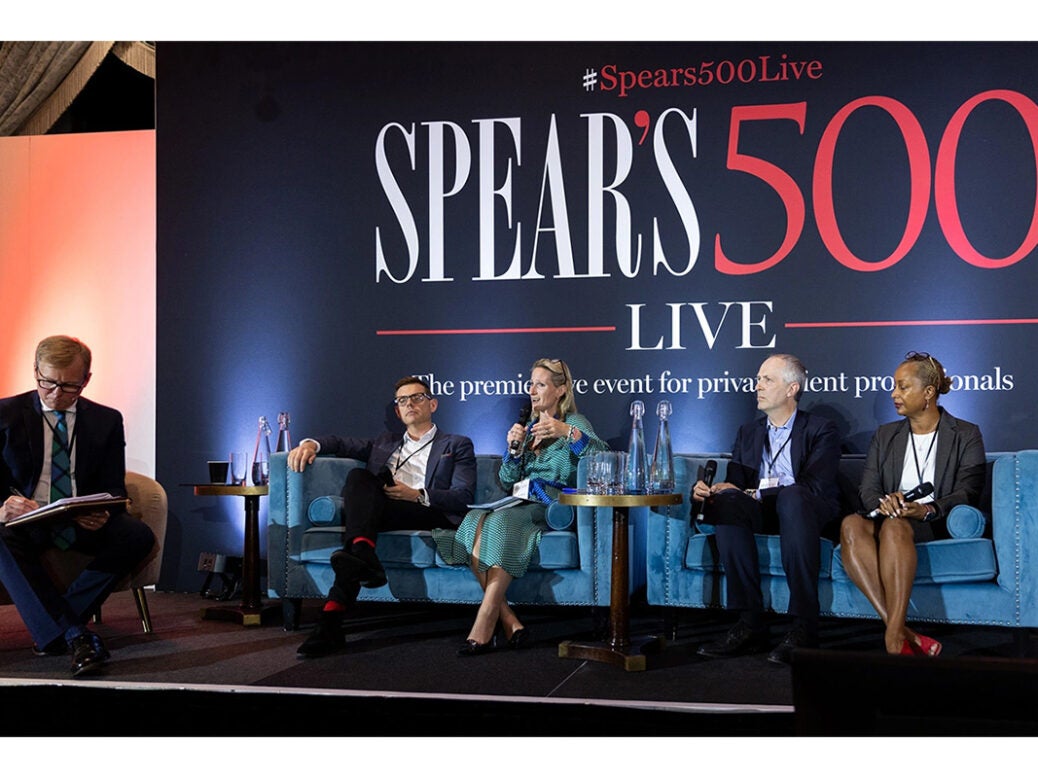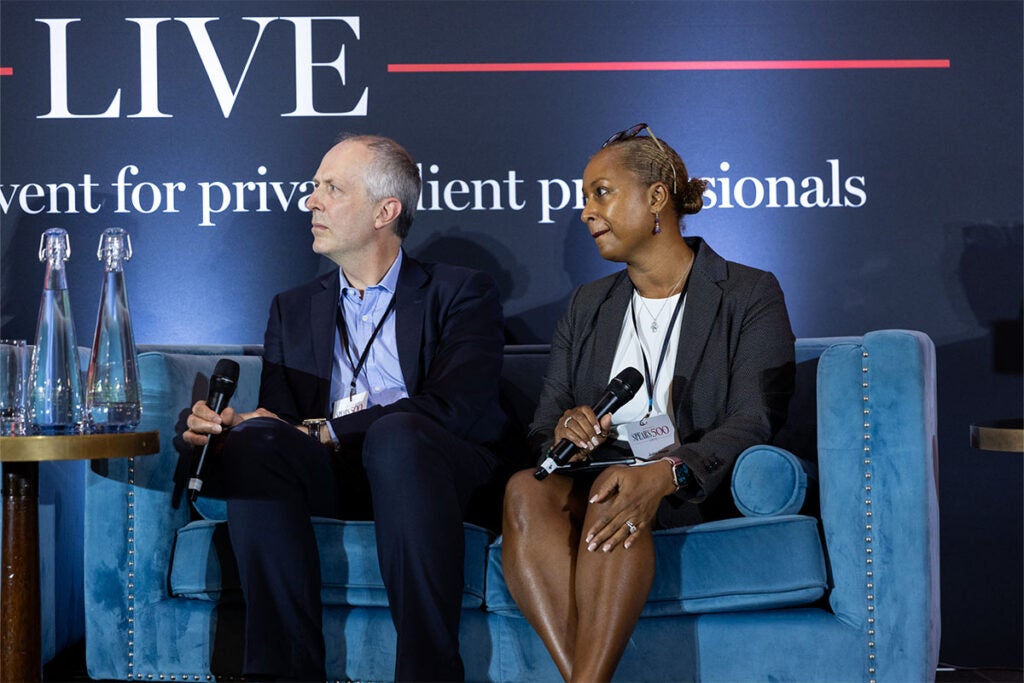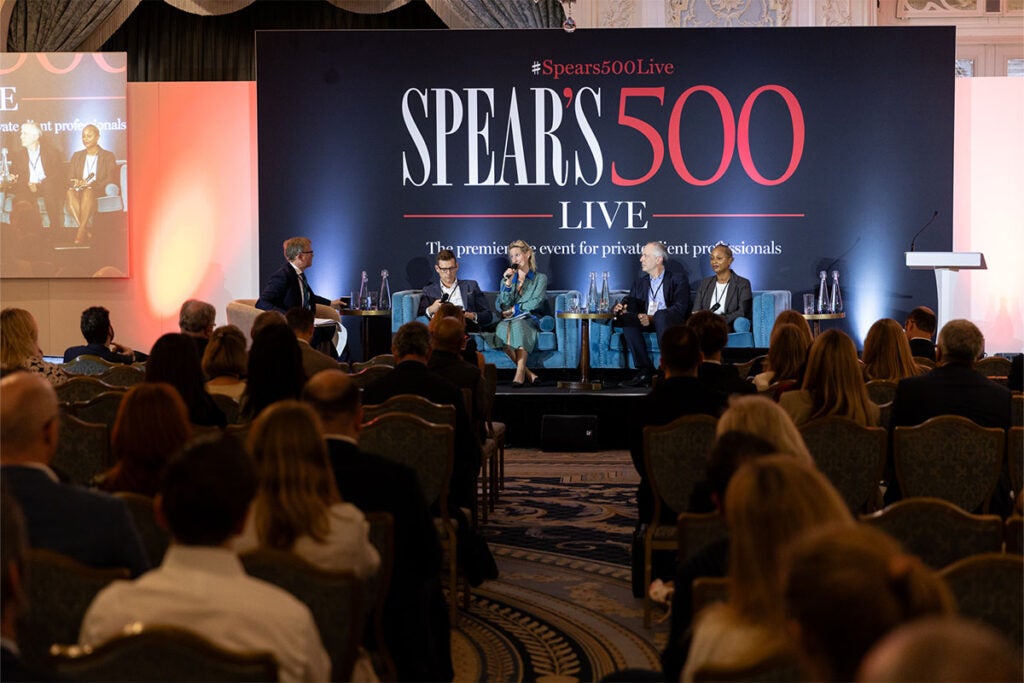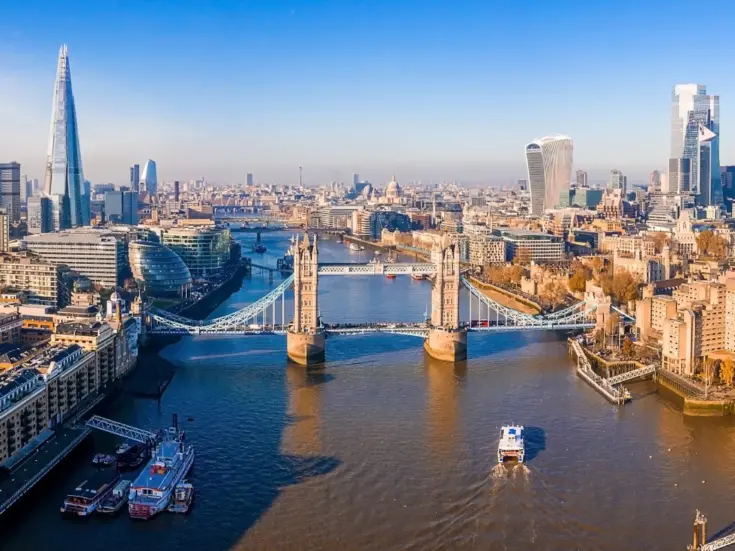
On Wednesday night, Rishi Sunak announced the UK general election will take place on 4 July. Less than 24 hours later, leaders from the worlds of private wealth, tax, law and more gathered to delve into issues touched by the shifting political landscape at Spear’s 500 Live at The Savoy.
[See also: Institut auf dem Rosenberg: schooling the leaders of tomorrow]
One of the biggest issues affecting HNW and UHNW families is the promise by both Labour and the Conservatives to scrap the existing non-dom regime.
A panel of experts dug into the issue, and others, in Tax and the future of non-doms: what will the next election mean for UHNWs in the UK? session, presented in association with Invest Barbados.
Non-doms in the firing line

‘There’s a 99 per cent chance of a Labour win of some description,’ said Matt Goodwin, professor in the School of Politics and International Relations at the University of Kent and author of Values, Voice and Virtue: The New British Politics, among other works. ‘And the government is going to be very unpopular, very quickly.’
[See also: Scrapping the non-dom regime: Hunt must proceed with caution]
Fiscal room for manoeuvre is going to be extremely limited given the UK’s large amount of debt and low growth, Goodwin added, meaning Labour will have to increase taxes and implement significant constitutional changes, ‘using wealth as a political tool’.
One of these expected changes is around the UK non-dom regime. As announced in Jeremy Hunt’s spring budget, from April 2025 non-domiciled residents – those taxed on a remittance basis – who are resident in the UK for more than four years will be subject to many of the same tax obligations as individuals without non-dom status.
[See also: Labour risks ‘spooking’ HNWs with non-dom pledge]
Shadow chancellor Rachel Reeves has said that a Labour government will take things a step further, tightening or eliminating some of the transitional measures and exemptions in the Conservatives’ plan.
‘This has been in the offing since about 2008,’ said John Barnett, a partner at Burges Salmon. ‘We’ve got a really peculiar system in the UK where we say to wealthy foreigners: “Please come; by the way, please don’t bring your money with you.” We then use this really archaic concept of domicile: “Hello, how are you, when are you leaving?”
‘That has been ripe for change,’ he said. ‘No country in its right mind could dream up a worse system than what we currently have.’
Questions over IHT
There’s also a proposal – still subject to consultation – to move to a residence-based regime for inheritance tax (IHT), meaning non-doms will be subject to IHT on their worldwide assets once they’ve been in the UK for 10 years, where previously they were exempt. They’d also be subject to IHT for 10 years after they leave the UK.
Camilla Wallace, a senior partner at Wedlake Bell, explained: ‘Then came Rachel Reeves’ announcement where she said: “By the way, anyone who is going put all their foreign assets into a trust before April 25, that’s not going to work, and we will not give any protections for those assets.”’
[See also: UHNWs brace for tax reform in election year]
Indeed, while these excluded property trusts would continue to afford protection under the Conservatives’ rules, Labour is widely expected to take aim. This means HNW and UHNW could face IHT on assets which they may have acquired well before they moved to the UK – and well into the future.
‘This really was the nail in the coffin,’ Wallace said. ‘This was the straw that broke the camel’s back.
‘The IHT rules – this 10-year tail – is extremely long and punitive. I’ve got clients who are thinking about leaving. They’ve been here for 12 years; imagine they go back to a far-flung part of the world and they die in year eight with no ties to the UK at all. But apparently their global assets will be subject to IHT; how on earth are the Revenue going to enforce that?’
[See also: Non-doms and the general election: when should HNWs act?]
This all means that clients are thinking: ‘What do I do now, and where do I go’.
‘We’ve been saying, “Hold fire, let’s just get a grip of the situation”,’ Wallace said. ‘It doesn’t mean do nothing; it doesn’t mean tread water. What it means is get your ducks in a row.’
What should HNWs do now

Wallace is advising clients to sit down with their accountant to ‘crunch the numbers’ to work out their tax liabilities and see what they can and can’t do, and what transitional reliefs are available. For example, non-doms with four years in the UK (who would be immediately impacted by the changes) have the opportunity to remit foreign income and gains into the UK at a tax rate of 12 per cent.
Barnett agreed: ‘For the moment, we’re saying hold firm – but we’re also saying don’t delay and delay and delay. There will be some steps you can take, and we know enough about the shape of [future policy] that you should be getting ready to take those steps now.
[See also: Labour risks ‘spooking’ HNWs with non-dom pledge]
‘For most people, it’s not an immediate decision to leave; you’ve got children in school; you’ve got a business to sell; you’ve got a house to buy. It’s a two- or three-year decision to move.’
As far as steps that individuals can take now, Barnett recommended looking at any trusts, look at rebasing assets, consider realising gains, and think carefully if you want to make income and gains this year that you’d be able to remit next year at 12 per cent.
Of course, one option for non-doms is leaving the UK altogether.
‘We haven’t seen a knee-jerk reaction to it,’ said Julia Hope, CEO and founder of Innovate LSO Solutions and a director at Invest Barbados. ‘These decisions take a lot of planning. And the human element of this is a key one – it’s got to be something they really want to do.’ That said, Hope noted that she wouldn’t be surprised to see a few billionaires jetting off to enjoy the sandy beaches of Barbados.
[See also: Is this how to save the non-dom regime?]
Wallace and Barnett listed Portugal, Spain, Switzerland, Italy, France, Greece, Malta, Cyprus, Monaco, Dubai and the US as locations being mentioned for repatriation, but ‘there’s a new one every week’ Barnett noted.
‘It really depends what you like,’ Wallace said. ‘You think about the human element, and then you look at the immigration and tax regimes.’
VAT on school fees

Proposed changes to school fees is another issue facing HNW and UHNW should a Labour government take control. Sir Keir Starmer hopes to raise about £1.6 billion a year by removing the VAT exemption for private schools – something parents have enjoyed since 1973.
Wallace noted that schools may allow parents to pay up front now to avoid a VAT charge when the legislation is implemented. ‘Will that work? The position is debatable, so expect extreme pushback’ she cautioned.
All panelists agreed that the UK’s increasingly onerous tax legislation is an important factor in its appeal as a place to live and do business.
[See also: How much money would Labour’s proposed VAT levy on private schools raise?]
‘Other countries are open for business,’ Hope said, ‘and they would welcome with open arms all of the non-doms who wish to leave, as well as those who are considering whether or not to come to the UK in the future.’
‘We’re shutting down, and everywhere else is opening up,’ Wallace added.
For Goodwin, it’s a question of whether any of the current political parties can actually address the structural problems in the UK economy: ‘Nobody’s talking about a growth plan, nobody’s talking about productivity, nobody’s talking about what to do with our debt.
‘When you think about the damage that can be done, I think it’s this inertia. As a country, we’re no longer capable of even entertaining radical economic change.’
Spear’s 500 Live 2024 is presented in association with our partners, Multrees, Henley & Partners, Sotheby’s International Realty, Stewardship, CAF, The Kusnacht Practice, Invest Barbados, Institut auf dem Rosenberg and Justerini & Brooks.






